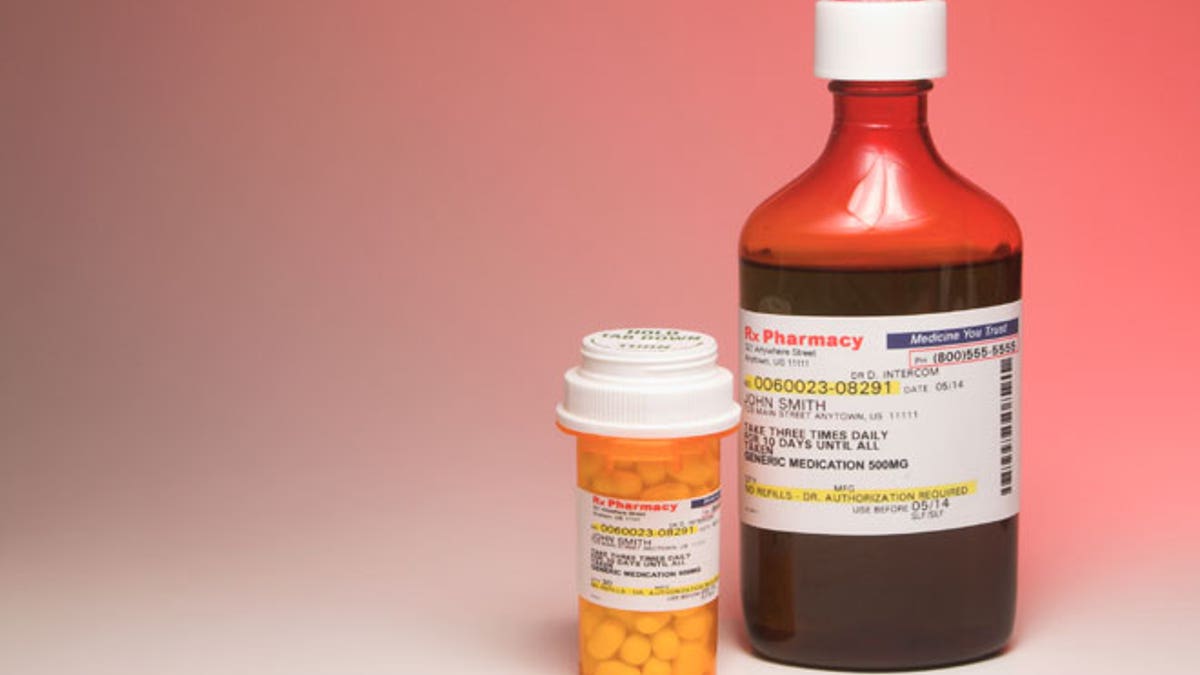
(© Copyright 2008 Robert Byron, All Rights Reserved)
Every eight minutes in the United states, a child is given the wrong dose of medication, according to a new study.
The study, published in the journal Pediatrics, looked a decade of data from 50 U.S. poison control centers and found that between 2002 and 2012, caregivers incorrectly gave medication to an average of 63,358 children under the age of six.
“Initially as clinicians, we noticed that we were seeing more of these in our own center and in our own practice,” study author Henry Spiller, director of the Central Ohio Poison Center at Nationwide Children’s Hospital in Columbus, Ohio, told FoxNews.com. “We pulled the national data to see how large of a problem this is.”
About 82 percent of the errors involved liquid formula, followed by tablets, capsules and caplets, which accounted for about 15 percent of the mistakes. Medication included ibuprofen, Tylenol, cough and cold medicine, asthma medications, as well as drugs for attention deficit hyperactive disorder (ADHD).
Errors were most common among children younger than a year old.
Parents with children among that age group typically aren’t familiar with the medications they’re administering, and, regardless of whether they’re new parents or have added another child to the family, they’re hurried and easily distracted when administering the medicine, Spiller said.
More than 25 percent of errors were due to what Spiller called “double-dosing.”
“What typically happens is, the mother goes in and gives the children a dose, then cares for another kid or makes dinner. The father comes in and wants to help and gives the child a dose. And then they talk, and they found they double-dosed their child,” Spiller explained.
Researchers encouraged medication scheduling and communication among caregivers to remedy that mistake.
Other times, caregivers credited poor package labeling or difficulty reading measurements on pre-provided cups for liquid medication.
The Centers for Disease Control and Prevention (CDC), along with other professionals and academics in the industry, are working to reduce these types of errors. Their recommendations include standardizing measurements for liquid medication to millimeters rather than teaspoons or tablespoons, and placing zeroes before decimal points on dosage labels.
“The science on how to label and package and dispense and administer medicines— it’s not that sophisticated, it’s not that fancy,” study author Marcel Casavant, medical director of the Central Ohio Poison Center and the chief of toxicology at Nationwide Children’s Hospital, told FoxNews.com. “It’s disappointing to see that these errors are still happening. The measurements are still confusing; it’s hard to read these. It shows there’s still an awful lot of room for manufacturers to make an improvement.”
The study did note a decrease of about 66 percent of errors involving cough and cold medicine from 2005 to 2012. Researchers attributed that improvement to manufacturers’ educational campaigns, as well as recommendations from the American Academy of Pediatrics (AAP) and the U.S. Food and Drug Administration (FDA) not to give young children cough and cold medicine.
But over the full course of the study, data show about a 43 percent increase in mistakes made among pain relievers and allergy medications.
Poison control centers didn’t follow about 73 percent of the cases after the initial call, which implies that those cases did not require further medical care. About 20 percent of the cases resulted in no clinical effects, while about 0.7 percent, or 4,549 cases, resulted in serious medical outcomes. Twenty-five cases resulted in the death of a child.
More serious issues, like cardiac problems, arose when a stimulant, such as an ADHD drug, was administered to the wrong child, Spiller pointed out.
Michael Beuhler, medical director of the Carolinas Poison Center in North Carolina, who was not involved in the Pediatrics study, said he wasn’t surprised by these findings but that they point to the importance of reporting medication errors.
Poison centers are independent of government agencies, so barring situations where a child may be endangered, parents who call to report a medication mistake should not be concerned about law enforcement intervening, Beuhler told FoxNews.com. The centers are also bound by the Health Insurance Portability and Accountability Act (HIPAA), which protects callers’ private information.
Beuhler also advised caregivers against Googling remedies in lieu of calling a poison center after making a medication mistake.
“We’ve had some close misses where people have found the wrong information on the Internet,” Beuhler said. “These are relatively rare, but they are happening.”
“The well-intended caller has nothing to worry about,” Beuhler added. “Only good will come.”
